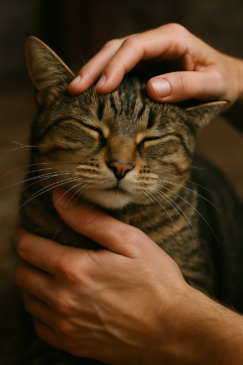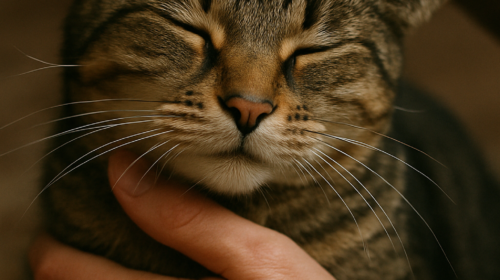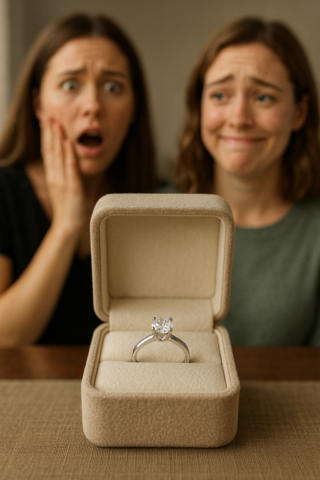It started innocently enough—or so I thought. My friend Laura had been coming over more often, and every time she visited, she spent a lot of time with my cat, Oliver. She’d sit on the couch with him curled in her lap, scratching behind his ears until he purred so loudly you could hear him across the room.
I didn’t mind—Oliver’s friendly. But then she started posting pictures of him.
At first, it was just the occasional Instagram story: “Hanging with this cutie today!” But soon, the captions changed. “My sweet boy”… “Love my little guy so much”.
The First Red Flag
One afternoon, I was scrolling through Facebook when I saw a post of hers with Oliver’s photo and the caption:
“My fur baby—couldn’t live without him.”
My jaw actually dropped. There was no mention of me, no clarification that Oliver belonged to someone else. To anyone reading, it sounded like he was her cat.
The Breaking Point
It might have been harmless if it stayed online, but then I overheard her at a mutual friend’s barbecue. Someone saw her phone wallpaper—a picture of Oliver—and asked, “Oh, is that your cat?”
And she said, “Yes, he’s mine.”
I was standing just a few feet away.

The Conversation
Later, when we were alone, I said, “Laura, I need to talk to you about something. Oliver’s my cat. I don’t mind you loving him, but you’re telling people he’s yours.”
She laughed like it was a joke. “Come on, I’m just being affectionate. Everyone knows he’s yours.”
“Except they don’t,” I said. “You literally told someone today that he’s yours. That’s not just being affectionate—that’s claiming him.”
Why It Bothered Me
Pets are family. They’re not props or accessories you can “borrow” for attention. I’d raised Oliver since he was a kitten, taken him to vet visits, paid for his care, and loved him through every quirky habit.
Hearing someone else take ownership—even casually—felt like a violation of that bond.
Her Reaction
Laura rolled her eyes. “I didn’t think it mattered. I just feel like he’s mine sometimes because he loves me too.”
I told her, “I’m glad he loves you, but that doesn’t change the fact that he’s my pet. Please stop telling people otherwise.”
She muttered an “Okay,” but I could tell she didn’t fully get why it was such a big deal to me.
Creating Distance
After that, I started setting boundaries. I didn’t stop her from visiting, but I limited her access to Oliver—no more unsupervised hangouts, and definitely no taking his picture without asking.
The frequency of her visits dropped after that, and honestly, I didn’t mind. Oliver was still friendly with her when she came around, but I noticed he seemed calmer when she left.
Lessons Learned
That situation taught me that some people blur the lines between affection and ownership. Just because they care about your pet doesn’t mean they have the right to claim them.
It also reminded me that boundaries aren’t just for people—they’re for the relationships others have with the things and beings you love.
Moving Forward
Now, I’m upfront with anyone new who meets Oliver: “He’s mine, but he’s happy to have visitors.” That way, there’s no confusion.
And if someone ever starts posting like they own him again, I won’t hesitate to address it right away.
Final Thought
Love for someone else’s pet is a wonderful thing—but respect for the actual owner is just as important. Affection doesn’t equal ownership, and claiming what isn’t yours—furry or otherwise—crosses a line.



